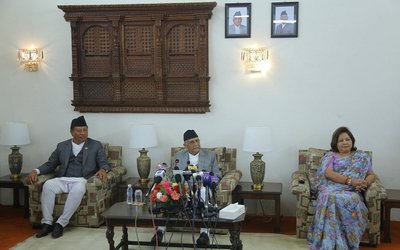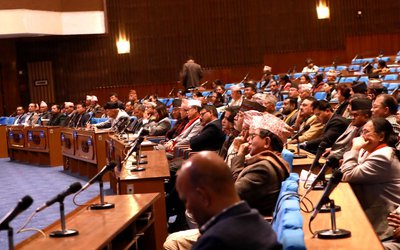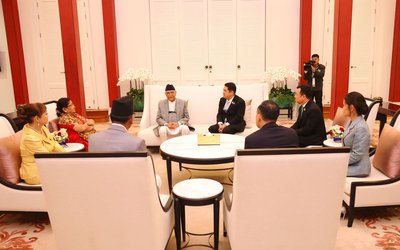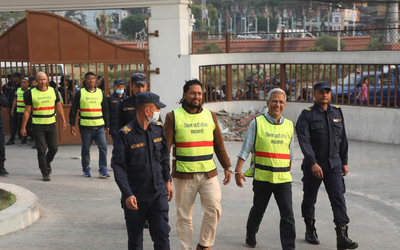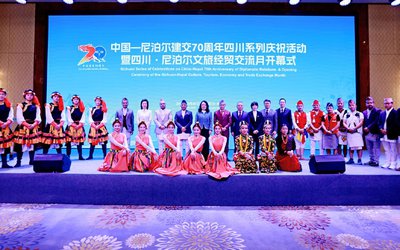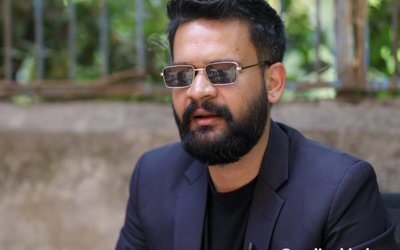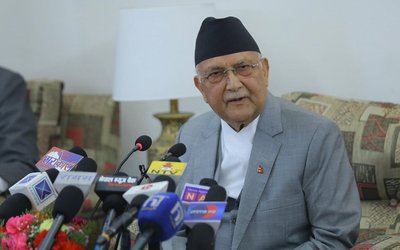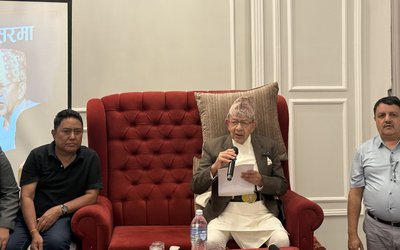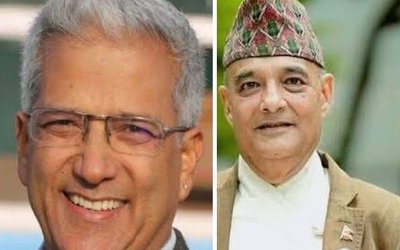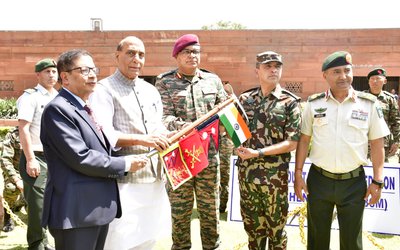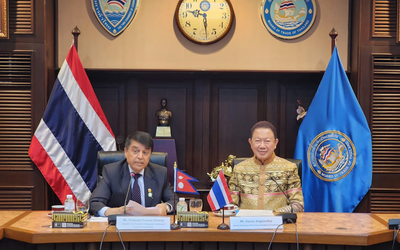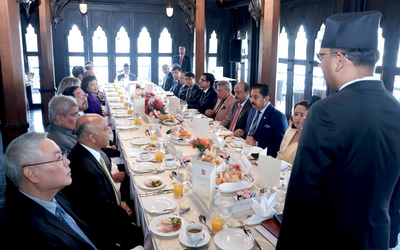
English for Teaching-Teaching for English (ETTE+) is a British Council teacher training project initiated to support the development of communicative English language teaching in government primary schools in Nepal.
British Council in partnership with Nepal English Language Teachers Association (NELTA) and Global Action Nepal (GAN) implemented ETTE+ project in Chitwan and Lamjung district respectively in 2012/13 with support from the Department of Education and local District Education Office. Approximately 150 primary level teachers from 66 government schools in Chitwan and 140 teachers from 31 schools in Lamjung participated in a fifteen day intensive training. Child centric interactive methods and activities using English as Medium of Instruction were illustrated and primarily focused during the training. Teachers were also highly encouraged to use group, pair and collaborative work among students.
The training achievements were measured in four different ways: classroom observations, daily reactions, progress, reflection upon it and its implications in their context. The evaluation report was recently submitted by Richard Thompsons Associates from UK, and the results are extremely encouraging. In order to celebrate its success British Council organized a dissemination programme on 16 April at Hotel Radisson. Topic for Discussion - “English as a Medium of Instruction in Schools – What do we need to get there?”
The trend of community schools currently changing their Medium of Instruction from Nepali into English particularly in the primary level has received mixed feedback. However, teachers, parents and a majority of stakeholders feel that the most important step for a state school to be in par with private schools is to change their Medium of Instruction into English. But on the other hand, there are many who feel that Language of Instruction shouldn’t really matter and content is what holds prime importance.
Going by the results of the ETTE+ training and the feedback we received from participating teachers, parents, students and head teachers in the schools in Lamjung and Chitwan, English as a Medium of Instruction is the way forward for them. Head teachers are ready to make necessary changes and students are ready to learn. However, a big question lingers – Are we ready yet and what do we need to ensure that this shift from Nepali medium to English is an effective and efficient one?
The panel guests invited during the live policy discussion were Mahasharam Sharma- Joint Secretary Ministry of Education, Dr Lava Dev Awasthi- Director General of Department of Education, Professor Dr. Chandreshwor Mishra- Faculty of Education, Tribhuwan University and Dili Ram Rimal- National Centre for Education Development. The participants who attended the discussion programme ranged from INGOS’s, education sector personnel including the participating teacher and students of the ETTE+ project. His Excellency Andy Sparks, British Ambassador to Nepal was also present.
Dili Ram Rimal from the Human Resources highlighted the importance of teachers receiving quality training in order to reach out to teach in English. At present although teachers acquire license and undergone various trainings to fulfil their requirements but they are not very competent.
The outcome of the discussion concluded that mother tongue will be of primary focus in the primary level as Nepal is a multi-lingual country. Secondly skills placed examination should be considered and give utmost importance to teacher training as that will result in change of their attitude in order to uplift the teaching system in the country. In the upcoming 10 year plan, the Ministry of Education emphasized to give priority firstly to University’s to shift their focus to English as the Medium of Instruction and then slowly with time they will shift focus to Higher Secondary School and Primary Level Schools meeting the present education context.
His Excellency quoted that an “active approach” is the right way to go ahead and learning English at a young age is the best way as children has the capacity to pick up language at an early stage and there is no damage to the culture as we already are a multilingual country.
- IME GROUP: Expands Into Paper Industry
- Mar 24, 2025
- CPN UML: Instigated By India
- Mar 23, 2025
- ADB’S CHIEF ECONOMIST: Nepal Reduces Poverty
- Mar 11, 2025
- FM DR. DEUBA: A Successful Visit
- Mar 11, 2025
- MD GHISING: Target Of Personal Grudge
- Mar 09, 2025
